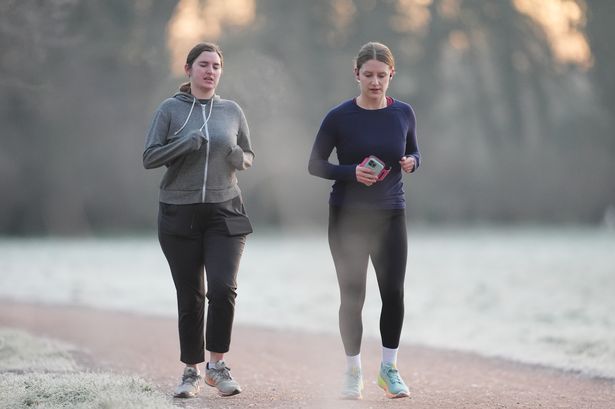Health
Short Exercise Bursts Boost Health, New Study Reveals Benefits

Research published in the British Journal of Sports Medicine demonstrates that short bursts of exercise, termed “exercise snacks,” can significantly enhance health. The study indicates that incorporating just a few minutes of physical activity throughout the day may improve respiratory fitness for individuals who struggle with time constraints or lack motivation.
The findings suggest that engaging in as little as 10 to 59 minutes of physical activity each week correlates with an 18% reduction in the risk of premature death from any cause. Despite these benefits, most adults fail to meet the recommended guidelines of 150 to 300 minutes of moderate activity or 75 to 150 minutes of vigorous activity weekly.
Understanding Exercise Snacks
Researchers from the University of Oviedo in Spain and the Danish Centre for Motivation and Behaviour Science have compiled evidence highlighting the health advantages of sporadic exercise. They define exercise snacks as structured, short-duration activities—lasting less than five minutes—that can be easily integrated into daily routines. Examples include stair climbing or bodyweight exercises.
The research involved 11 randomized controlled trials with a total of 414 inactive participants, 69% of whom were women. These exercise snacks were performed at least twice a day for a minimum of three days each week. The results showed a significant improvement in cardiorespiratory fitness among adults, although there was limited evidence of enhanced muscular endurance in older individuals.
While the study did not find changes in body composition, blood pressure, or cholesterol levels, the team emphasized the overall benefits of these short exercise bouts. They noted that people are more likely to adhere to brief sessions of activity compared to longer, more demanding workouts, which can often lead to discouragement.
Health Benefits and Accessibility
The researchers highlighted that achieving even half of the recommended weekly activity—between 150 and 300 minutes of moderate or 75 to 150 minutes of vigorous activity—can confer substantial mental health benefits, including an 18% lower risk of depression. They stated, “These findings highlight the potential of low volume, accessible physical activity strategies to produce significant health benefits, particularly among physically inactive adults.”
The time-efficient nature of exercise snacks makes them particularly appealing for those who believe they are too busy to exercise. “Exercise snacks may enhance adherence to regular physical activity by providing short, flexible exercise bouts that are easier to integrate into daily routines,” the researchers added.
Typical examples of moderate activities include brisk walking (at a pace of 4 mph or faster), heavy cleaning tasks like washing windows or mopping, cycling at speeds of 10 to 12 mph, or playing badminton. Vigorous activities encompass jogging at speeds of 6 mph or faster, hiking, shoveling, fast cycling, basketball, or tennis.
This study underscores the significance of making physical activity more accessible and manageable, especially for those who may find traditional exercise regimens daunting. By promoting short, structured bursts of activity, individuals can improve their overall health and fitness levels without needing extensive time commitments.
-

 Lifestyle5 months ago
Lifestyle5 months agoLibraries Challenge Rising E-Book Costs Amid Growing Demand
-

 Sports4 months ago
Sports4 months agoTyreek Hill Responds to Tua Tagovailoa’s Comments on Team Dynamics
-

 Sports5 months ago
Sports5 months agoLiverpool Secures Agreement to Sign Young Striker Will Wright
-

 Lifestyle5 months ago
Lifestyle5 months agoSave Your Split Tomatoes: Expert Tips for Gardeners
-

 Lifestyle5 months ago
Lifestyle5 months agoPrincess Beatrice’s Daughter Athena Joins Siblings at London Parade
-

 Science4 months ago
Science4 months agoSan Francisco Hosts Unique Contest to Identify “Performative Males”
-

 World4 months ago
World4 months agoWinter Storms Lash New South Wales with Snow, Flood Risks
-

 Science5 months ago
Science5 months agoTrump Administration Moves to Repeal Key Climate Regulation
-

 Business5 months ago
Business5 months agoSoFi Technologies Shares Slip 2% Following Insider Stock Sale
-

 Science5 months ago
Science5 months agoNew Tool Reveals Link Between Horse Coat Condition and Parasites
-

 Sports5 months ago
Sports5 months agoElon Musk Sculpture Travels From Utah to Yosemite National Park
-

 Science5 months ago
Science5 months agoNew Study Confirms Humans Transported Stonehenge Bluestones









